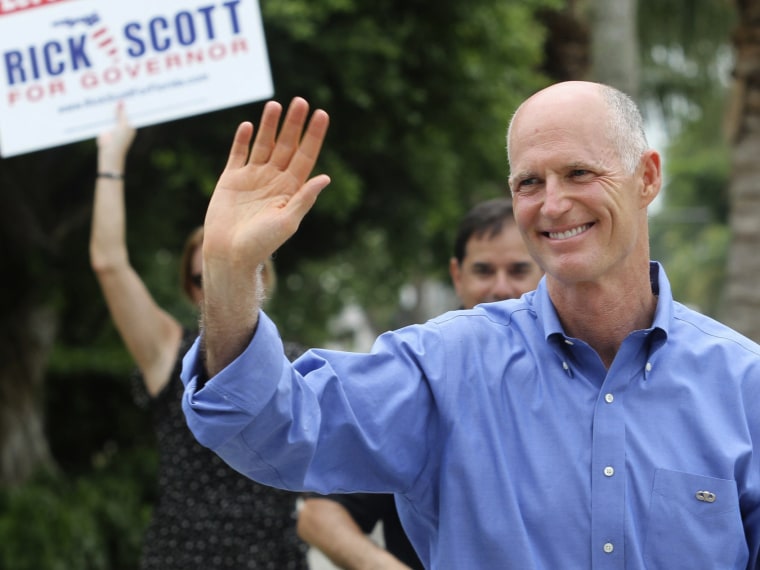Florida Gov. Rick Scott surprised the country last month when he stopped trashing health care reform to announce that he wanted to opt in to a federally funded expansion of Medicaid. The Obama administration had agreed in principle to let Florida privatize its program, and Scott assured fellow Republicans that he would stop the expansion if it ever burdened the state’s taxpayers. Under no circumstances would he raise “a white flag of surrender” to the Democrats in Washington.
Now it appears he may have to raise that flag to the Republicans in his own state legislature. On Monday, a Florida State Senate committee rejected Scott’s proposal on a 7-4 party-line vote. The setback comes just a week after an even sharper rejection by a Florida House committee, and it leaves little chance that the state’s Medicaid program will expand to cover the hundreds of thousands of residents who would have qualified for coverage under Scott’s plan.
Scott is one of eight Republican governors who have recently embraced Obama’s effort to expand health care coverage for the poor. He’s the first to be blocked by his own party, but a compromise may yet emerge. Rather than kill the proposal outright, the Senate panel is proposing that Florida bypass Medicaid and expand coverage for low-income adults through a state insurance exchange set up for kids.
It’s not clear whether the federal Department of Health and Human Services will support such a sharp departure from the national Medicaid model. As a first step, the whole Florida legislature will have to unite behind a proposal. If that happens, there may yet be hope for hundreds of thousands of Floridians who currently lack any coverage.
